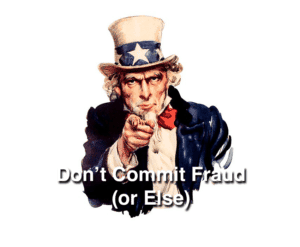 The Commodity Futures Trading Commission (CFTC) has shut down another initial coin offering with allegations of fraud. The ICO unfortunately named My Big Coin (MBC) ends up becoming My Big Con as the enforcement action has charged defendants Randall Crater of East Hampton, New York, Mark Gillespie of Hartland, Michigan, and My Big Coin Pay, Inc., a corporation based in Las Vegas, Nevada, with scamming over $6 million from investors.
The Commodity Futures Trading Commission (CFTC) has shut down another initial coin offering with allegations of fraud. The ICO unfortunately named My Big Coin (MBC) ends up becoming My Big Con as the enforcement action has charged defendants Randall Crater of East Hampton, New York, Mark Gillespie of Hartland, Michigan, and My Big Coin Pay, Inc., a corporation based in Las Vegas, Nevada, with scamming over $6 million from investors.
The MBC token was represented to investors as being actively traded on several crypto exchanges when in fact it was not. The fraudsters also represented the digital currency was backed by Gold when it was really backed by digital vapor and promotional prose.
The funds raised were said to be used for living the big life including travel, entertainment, jewelry purchases and much more.
 The defendants apparently said that My Big Coin had partnered with MasterCard, with the promise that My Big Coin could be used anywhere MasterCard was accepted, when in fact no such partnership existed. In the end, any payouts to customers were derived from stolen funds from other customers in a classic Ponzi scam.
The defendants apparently said that My Big Coin had partnered with MasterCard, with the promise that My Big Coin could be used anywhere MasterCard was accepted, when in fact no such partnership existed. In the end, any payouts to customers were derived from stolen funds from other customers in a classic Ponzi scam.
As investors began to question the operation, the defendants attempted to conceal their fraud by issuing additional coins to customers and falsely representing that they had secured a deal with another exchange to trade MBC.
The CFTC reports that on January 16, 2018, Judge Rya Zobel of the U.S. District Court for the District of Massachusetts, issued a restraining Order, also under seal, freezing the Defendants’ assets.
The Order also freezes the assets of Relief Defendants Kimberly Renee Benge, Kimberly Renee Benge d/b/a Greyshore Advertisement a/k/a Greyshore Advertiset, Barbara Crater Meeks, Erica Crater, Greyshore, LLC, and Greyshore Technology, LLC for allegedly receiving customer funds without providing any legitimate services to clients and without any interest or entitlement to such customer funds.
 The CFTC Director of Enforcement James McDonald, commented on the enforcement action;
The CFTC Director of Enforcement James McDonald, commented on the enforcement action;
“As this case shows, the CFTC is actively policing the virtual currency markets and will vigorously enforce the anti-fraud provisions of the Commodity Exchange Act. In addition to harming customers, fraud in connection with virtual currencies inhibits potentially market-enhancing developments in this area. We caution potential virtual currency customers, once again, that they should engage in appropriate diligence before purchasing virtual currencies.”
The CFTC seeks civil monetary penalties, restitution, rescission, disgorgement of ill-gotten gains, trading and registration bans, and permanent injunctions against further violations of the federal commodities laws, as charged.
This case is brought in connection with the CFTC Division of Enforcement’s Virtual Currency Task Force, an new entity at the CFTC. Earlier this month the VCTF took down two other ICO scams, one against Cabbage Tech, DBA Coin Drop Markets, and the other against Entrepreneurs Headquarters Limited (UK).
Happy New Year from MY BIG COIN pic.twitter.com/SmIWoQm6UF
— MY BIG COIN (@MYBIGCOIN) January 2, 2018
Have a crowdfunding offering you'd like to share? Submit an offering for consideration using our Submit a Tip form and we may share it on our site!

